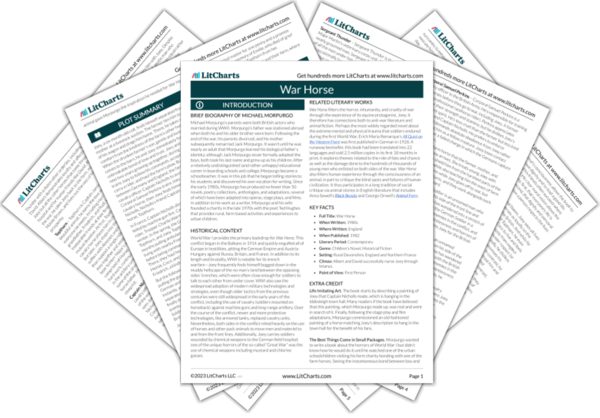Sergeant Thunder again confirms his humanity in taking the side of the horses with strong passion, arguing for their value as individuals. Instead of being sold—many for slaughter, thanks to their rundown condition—he thinks that people should celebrate the animals as war heroes, just as they celebrate the returning soldiers. His remarks recall the moment where grateful German soldiers awarded an Iron Cross to Joey and Topthorn, acknowledging the importance of their service at the field hospital. And while it’s clear that Martin agrees with the Sergeant, neither man can do anything to change the decree.
